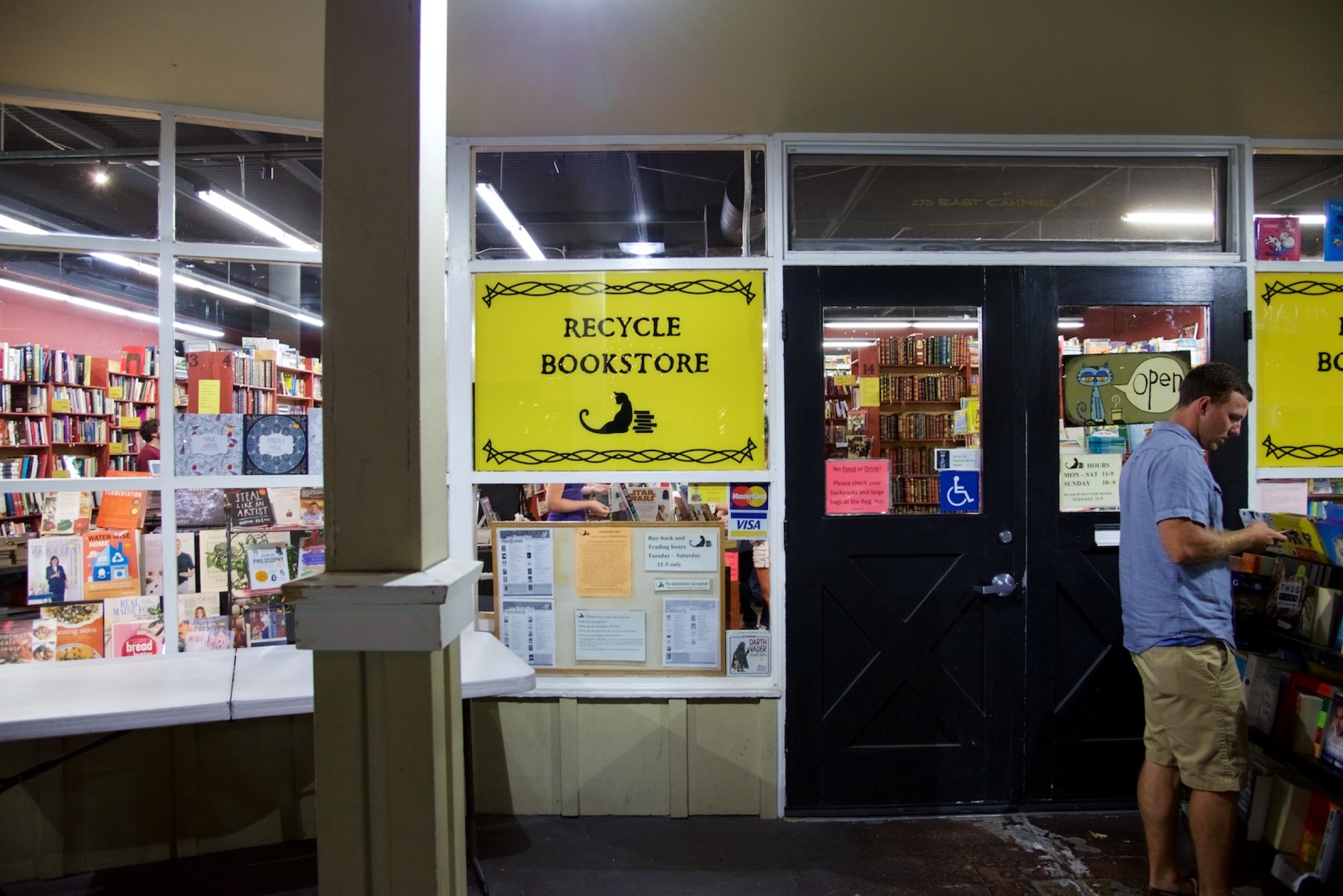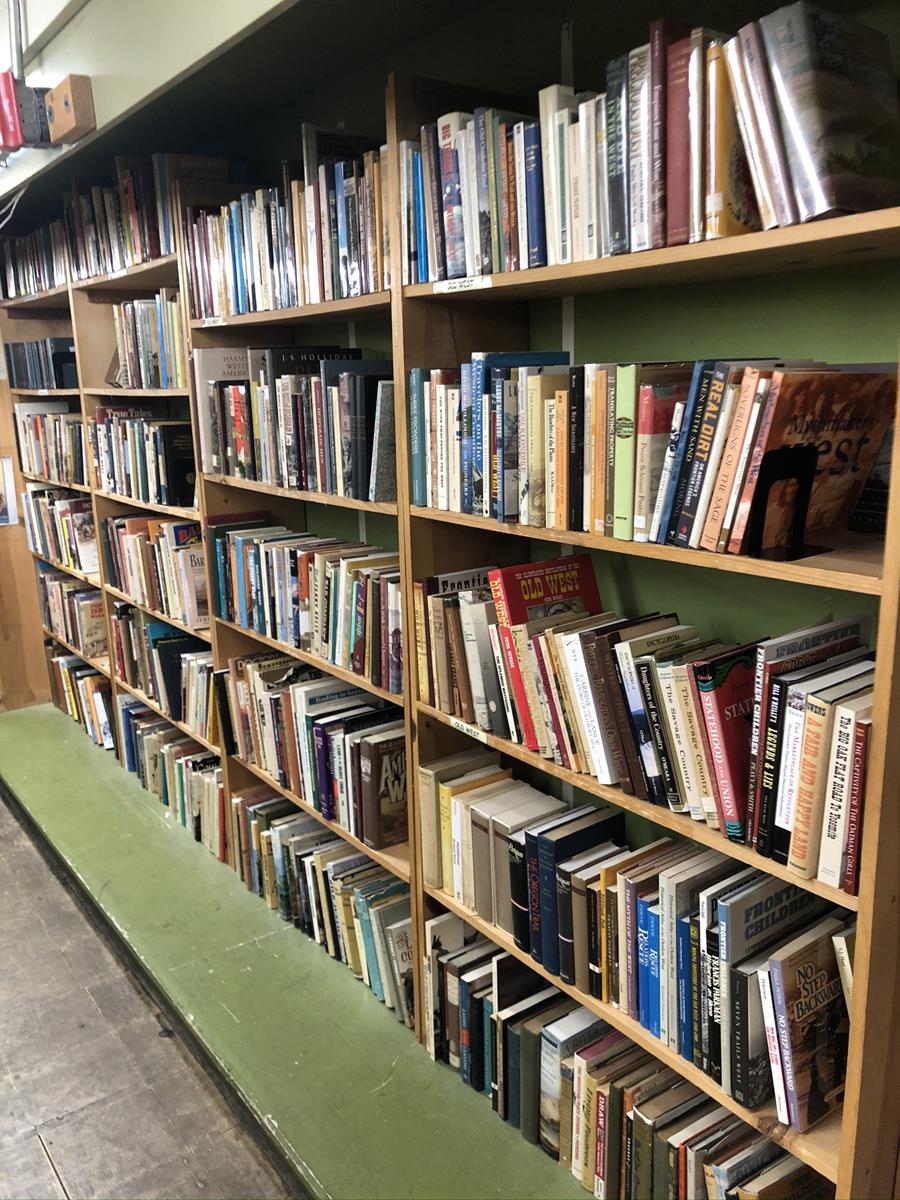Discover: Your Guide To The Best Recycle Bookstore Deals!
Is the allure of tangible books, the scent of aging paper, and the thrill of uncovering forgotten treasures fading in the digital age? The enduring presence of "recycle bookstore" demonstrates that the answer is a resounding no, proving a persistent demand for the unique experience of browsing and buying pre-loved literature.
The concept itself, a haven for used books, offers more than just a cost-effective alternative to buying new. It represents a commitment to sustainability, reducing waste and giving literary works a second (or third, or fourth) life. These establishments are not mere repositories of discarded volumes; they are often vibrant community hubs, spaces where readers connect, exchange ideas, and discover new worlds. They cater to a diverse audience, from the budget-conscious student to the seasoned collector, all united by a shared appreciation for the printed word and the joy of discovery. The shelves, unlike the carefully curated selections of a modern bookstore, are populated by the unpredictable and sometimes eccentric offerings of the public. This element of chance, the thrill of stumbling upon a rare edition, a forgotten classic, or a long-sought-after title, is a key component of the "recycle bookstore" charm. The physical act of browsing, of running a finger along the spines, of inhaling the distinct aroma of aged paper and ink, creates a sensory experience that digital platforms simply cannot replicate. The careful selection of books, the joy of owning a tangible book, and the unique experience of browsing through used bookstore are something that make the bookstore unique.
To understand the impact of the "recycle bookstore" it's important to understand their operation, their impact on the community and their role in the world of books.
Bookstore
Beyond the financial benefits and environmental consciousness, recycle bookstores function as vital parts of a wider literary ecosystem. They serve as a valuable resource for rare and out-of-print books, which might not be accessible in conventional bookstores. They offer a platform for independent authors and self-published works. They make books more accessible to individuals who might not otherwise be able to afford them. Bookstore are a place where individuals can gather, learn and share stories
The Economics of Reuse
The economic model that the "recycle bookstore" follows is inherently efficient and environmentally friendly. They acquire books from a range of sources, including individual donations, library discards, and estate sales. The prices are typically significantly lower than those of new books, making reading more accessible. This pricing strategy contributes to a circular economy by extending the life cycle of books, keeping them out of landfills, and reducing the need for new production, which in turn conserves resources such as paper and ink. This model provides a sustainable and economical way of enjoying books and reading.
Community and Connection
In addition to their practical advantages, "recycle bookstore" offer a social dimension that online retailers cannot match. They are often community gathering places, with events like book clubs, author readings, and literary discussions. These events bring people together who share a passion for books. The bookstores provide a venue for individuals to meet and share experiences and thoughts. These gatherings contribute to a sense of belonging and foster a love of literature, enriching the community beyond the buying and selling of books. These businesses provide individuals with a connection to the rich world of literature and reading, cultivating a community of avid readers and literary enthusiasts.
The Challenge of Digitization and Future of "Recycle Bookstore"
Despite the rise of digital books, "recycle bookstore" have maintained their popularity, signifying the value of physical books. The digitization of literature has altered how people read and access books, but it hasn't entirely replaced the appeal of physical books. The tactile experience of holding a book, the aroma of paper, and the visual satisfaction of browsing through shelves are sensory experiences that digital media cannot replicate. These stores are adapting to this new landscape, using online platforms and social media to connect with customers. They now offer online ordering, email newsletters, and social media interactions. They are hosting a variety of digital and physical events to make it easy for consumers to connect and discover their offerings.
Overcoming Obstacles and Embracing Change
As the book industry evolves, "recycle bookstore" are also facing numerous challenges. These include increasing competition from online retailers, the rising cost of operating in urban locations, and the need to adapt to the ever-changing preferences of customers. To tackle these difficulties, many bookstores have implemented diverse tactics. They have embraced internet technology, upgraded their marketing strategies, and cultivated partnerships with neighborhood groups. The "recycle bookstore" continues to play a crucial part in the literary landscape, serving as a bastion of sustainability, accessibility, and community connection.
To further elaborate on the significance of the "recycle bookstore," let's delve into a hypothetical example. Imagine a bookstore located in the heart of a bustling city. This bookstore has cultivated a devoted following. The owner, a passionate bibliophile, carefully curates the collection, ensuring a diverse selection of genres and authors. The bookstore hosts weekly book club meetings, creating a place for readers to connect and exchange thoughts. It works with neighborhood schools to donate books, making literature accessible to kids from all socioeconomic levels. The bookstore has an online presence, allowing consumers to browse inventory and buy books from anywhere in the world. This example demonstrates how "recycle bookstore" can serve as dynamic literary hubs.
Recycle bookstores have a distinct position in the book industry, serving as havens for literature lovers who like the thrill of discovery and the sustainability of used books. These establishments offer a special browsing experience and a sense of community.
The rise of digital books has not eroded the appeal of physical books, and "recycle bookstore" have adapted by adopting digital platforms. They have also formed relationships with independent authors, schools, and community organizations. These businesses are a reflection of the value of literature, sustainability, and community connection. As long as readers appreciate the tactile pleasures of reading, the unique joys of browsing, and the idea of environmentally friendly consumption, "recycle bookstore" will continue to thrive.


